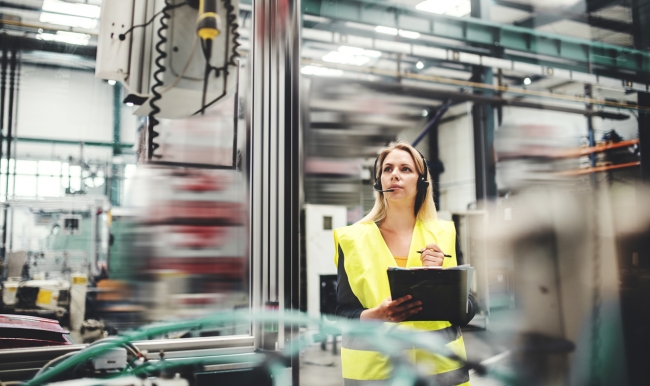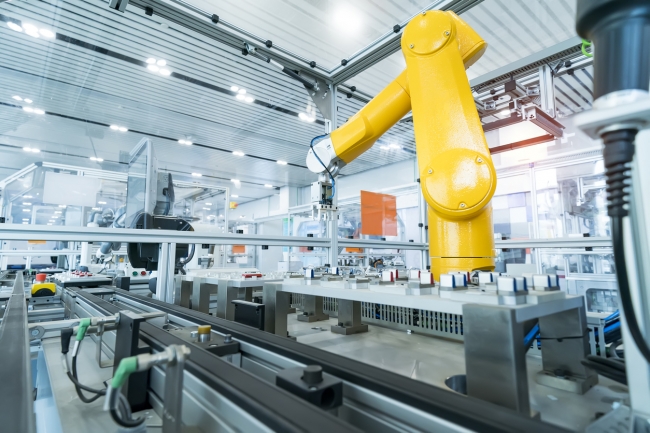3 minute read • published in partnership with PTC
Insight: UK can lead the digital acceleration race in Europe with additional Government support
As the country emerges from the shackles of Covid-19, the UK Government has an ideal opportunity to make good its Brexit promise of making the UK a global leader in digital technology.
If Industrial Internet of Things (IIoT), augmented reality and spatial computing are to become a reality, Whitehall will need to honour its commitment and supply the funding necessary to make it happen.
Paul Haimes, European VP of Technical Sales at PTC, one of the world’s leading authorities on digital technology, admitted that whilst the Industrial Strategy Challenge and Made Smarter programmes are making a tangible difference, more planned investment needs to be released. This in turn will encourage companies and their facilities to become more connected and competitive.
He feels now is the perfect time for the Government to act, with the pandemic highlighting the fragility of extended supply chains and businesses now looking to re-shore production that may previously have been placed in low-cost countries.

More investment is needed to encourage companies to make their facilities more connected and competitive / Picture: Getty/iStock
“Getting materials and components delivered on time so production lines aren’t disrupted is a clear business priority and there is definitely a growing shift towards building resilience,” explained Paul, whose career at the forefront of the industry spans more than three decades.
“Larger organisations are looking for local suppliers on a more regional basis – this brings a great opportunity for UK based SMEs. Those who have already adopted digital technologies become an easy fit to the connected supply chain of the larger organisation.”
Prior to COVID-19, digital transformation was certainly one of the biggest talking points for UK SMEs, with the cost of technology versus the actual business benefit being a point of concern.
However, as more were beginning to make the first steps to a digital transformation COVID-19 struck and it sharpened the focus on managing day-to-day budgets and ensuring companies have enough cashflow in place to survive.
With additional government funding, and as we start to climb our way out of the pandemic, UK companies should strongly consider starting an Industry 4.0 project, as this can be done with a relatively modest investment.
“Any of the Catapult Centres are an excellent place for any SME to start – they’ve all invested time in looking at what can be achieved with varying degrees of investment. The Advanced Manufacturing Research Centre (AMRC) has shown tangible benefit from basic sensors and lightweight IoT applications that can provide real insight into the shop floor.
“To get the most out of deployment you need to make sure you’ve identified the tangible business benefits it is going to deliver – ultimately, will it save you/make you money.”

Starting an Industry 4.0 or digital transformation project can be done with a relatively modest investment / Picture: Getty/iStock
He continued: “A connected manufacturing base forms a critical part of the bigger Digital Thread model, which will ultimtely support sustainability and the circular economy and further support the UK Government’s ambitious carbon reduction targets.
“To make this possible, it’s crucial that the UK Government creates the climate for investment and greater spending where it is needed most – by doing so I do believe that we can become a lead in Europe for emerging technologies that will transform the lives of every single human being.”
PTC provides a host of technology solutions to help industrial companies create value for themselves and the rest of the world. This is achieved through a combination of Augmented Reality, Industrial IoT, Product Lifecycle Management and CAD solutions.
With its UK base in Farnborough, PTC is predicting further growth in spatial technology and how we interact with our surroundings through smart phones and tablets, whilst Augmented Reality and wearable technologies will become a real option for all parts of the supply chain.